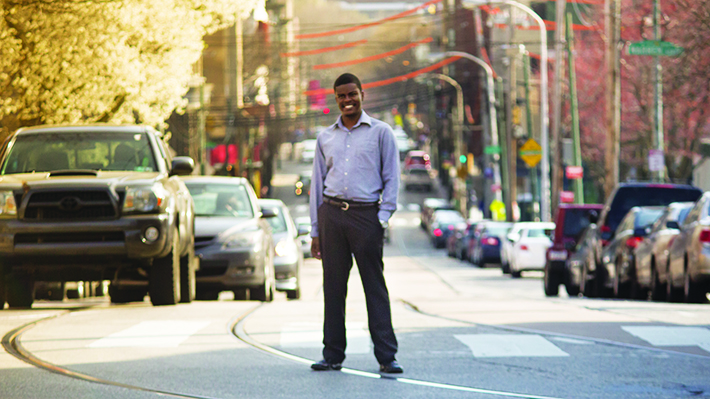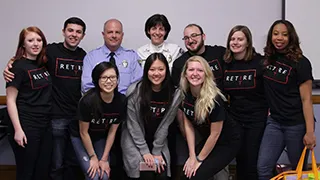
Lessons I Learned as a Community Activist and University Intrapreneur
By Jabari Jones
Each year, hundreds of college students come up with potentially great ideas on how to initiate change at their universities. These ideas often involve enhancements to student life, improvement in the overall academic experience and support of the surrounding community. Despite some of the best intentions of the most gifted students, many of these attempts to initiate change ultimately fail and don’t even generate publicity.
Students who attempt to initiate change – what I call, “student intrapreneurship” – tend to hit common obstacles. I have experienced some of these challenges firsthand. These experiences have helped me design a mental framework on how to approach innovation at a university.
My passion has been around economic development via entrepreneurship, and I firmly believe the best way to strengthen a community is by encouraging its citizens to become entrepreneurs. Through entrepreneurship, individuals can take ownership in their communities, create employment opportunities for other residents and serve as role models for the next generation of entrepreneurs. My intrapreneurship efforts have all been tied to this passion. For example, I proposed a new platform for students to apply multi-disciplinary backgrounds to tackle some of the toughest economic development challenges in West Philadelphia. For me, being a student intrapreneur has had its trials, successes and failures.
One of my earliest attempts at student intrapreneurship provided one of my greatest lessons. My first co-op, a commercial corridor walk-in survey, gave me a look at the target market in Philadelphia. During spring and summer of 2014, I walked up and down commercial corridors and interviewed business owners and their employees around West Philadelphia. I used notepads to take notes on those interviews, surveying the state of small business, the needs for technical assistance and financial products and general business observations for over 500 small businesses.
In retrospect, it would’ve been so much easier to take notes on an electronic tablet. I ended up with two heavy stacks of legal pads, and it made the process of doing a final report a really long two-week endeavor. My final report and conclusions were sent to the Federal Reserve Bank for internal uses on how they can better serve underrepresented communities. The Federal Reserve is also considering publishing the report.
With this great experience on the back end, I was able to design a proposal to Drexel’s senior leaders on how the university could be more welcoming to small-businesses and assist in their long-term growth. The proposal hinged on the creation of a student-led office at the University that could assist local small business owners by applying our students’ different perspectives and academic backgrounds to propose solutions to issues facing the small-business community at large. The shining climax of my proposal was a small-business center that would house this new office and be built on the closest commercial corridor to Drexel, Lancaster Avenue.
At this point, I had drawn heavily from classroom knowledge of being a student at LeBow. I had properly surveyed my target market, and I had worked with business groups and individual small-business owners. I received feedback and letters of support from key University administrators and had even received positive feedback from Drexel President John Fry. Each of these conversations and praises made me feel even more confident and passionate. The proposal had so much input from the community that I felt the benefits it presented were undeniable. The University City Review even published an article praising me for how devoted I was for looking for ways to help small-business owners.
And then the day came to present a finalized proposal with the feedback of existing offices at Drexel. I felt that I was ready for any question on how this would benefit the community, but one of the first questions thrown at me knocked me completely off guard. The question was what the schedule would look like for implementing these pieces of the proposal – especially the creation of a new small-business center.
The staff walked me through the proposal, and I came to see how some aspects weren’t as feasible as I had originally seen them. I had anticipated an immediate acceptance followed by implementation. The administration explained the process and how long it would take to gather resources to build something like a small business center. I realized that I had overestimated the resources the University might be able to focus on a project like that at that time.
This led me to perhaps the most important lesson for any student intrapreneur: one must constantly leverage the needs of the community, or target constituent, with the resources of the University. A student intrapreneur needs to be realistic and find balance between the two in order to have a successful initiative.
I continued to refine these ideas and developed more recommendations to the administration on connecting with the small business community. And from my proposal, Drexel expanded its reach into small business economic development, creating programming at its Dornsife Center for Neighborhood Partnerships to enrich businesses. I have often consulted with the staff there on that agenda. I have also seen a rise of younger students proposing ideas to the University on impacting the local community.
I am optimistic that Drexel will see the value in considering how the University can better position itself to support local small businesses and help them thrive. I also believe that my work at Drexel has helped the University to frame a mindset around the opportunity it has to create economic growth in commercial corridors.
Student intrapreneurship is important and valuable. It gives the administration at a university the ability to see things from a different perspective. Students also tend to be risk-takers and innovative in their thinking, and can provide the administration with fresh new ideas. Through student intrapreneurship, students also have the opportunity to have input on how their university functions.
Editor’s note: Jabari Jones is a LeBow College of Business senior majoring in legal studies with certificates in brand and reputation management and social responsibility in business. In 2014, Jabari worked with senior Drexel officials to strengthen relations between the university and local businesses. Today, Jabari runs a collaborative of West Philadelphia’s business associations, the West Philadelphia Corridor Collaborative which addresses macro issues facing small business. Jones plans to compile his experiences and the lessons learned in a new publication that he hopes will help student intrapreneurs successfully lead movements for innovation and change in their universities.
Photography by Shantanu Saha
The legal studies major at Drexel Lebow includes classes in economics, finance, international business and critical reasoning, in addition to legal studies.
Drexel LeBow offers a variety of minors and certificates to supplement your major, for both LeBow students and those from other Drexel colleges.

